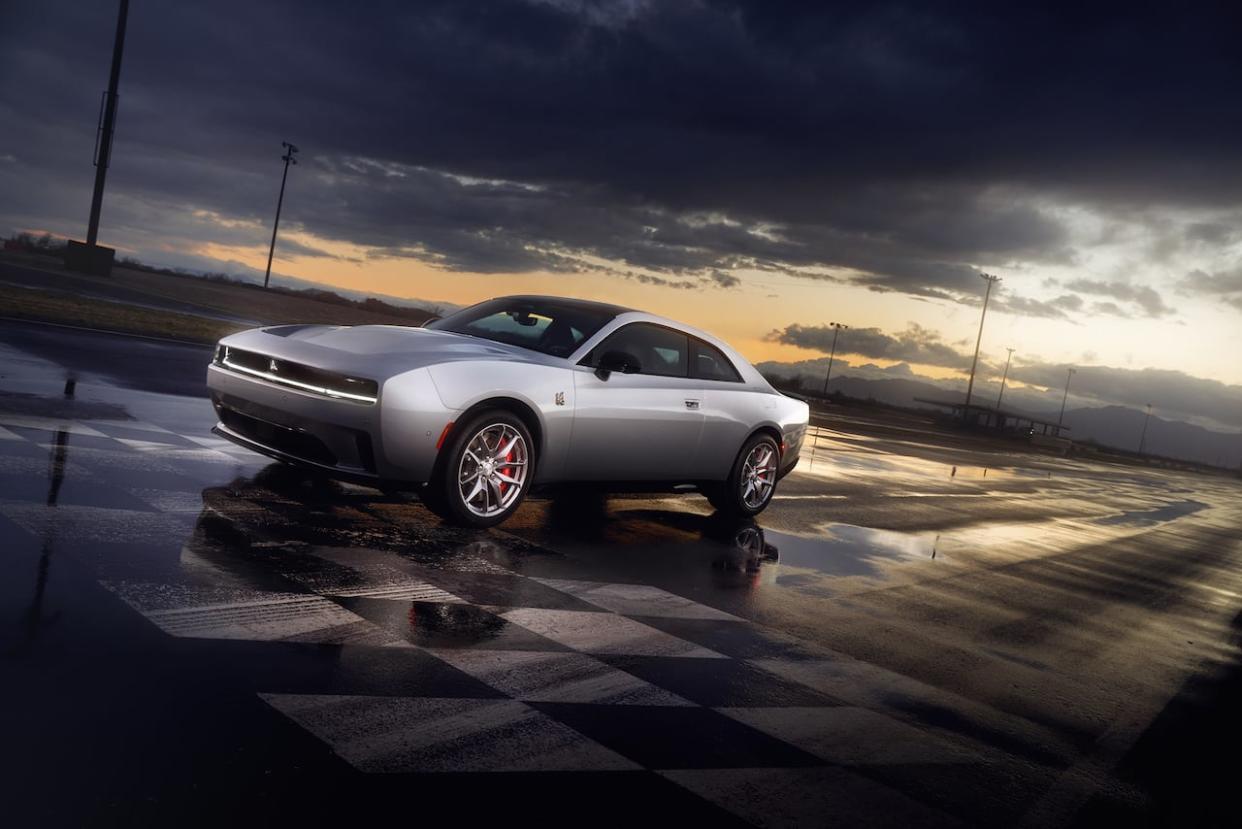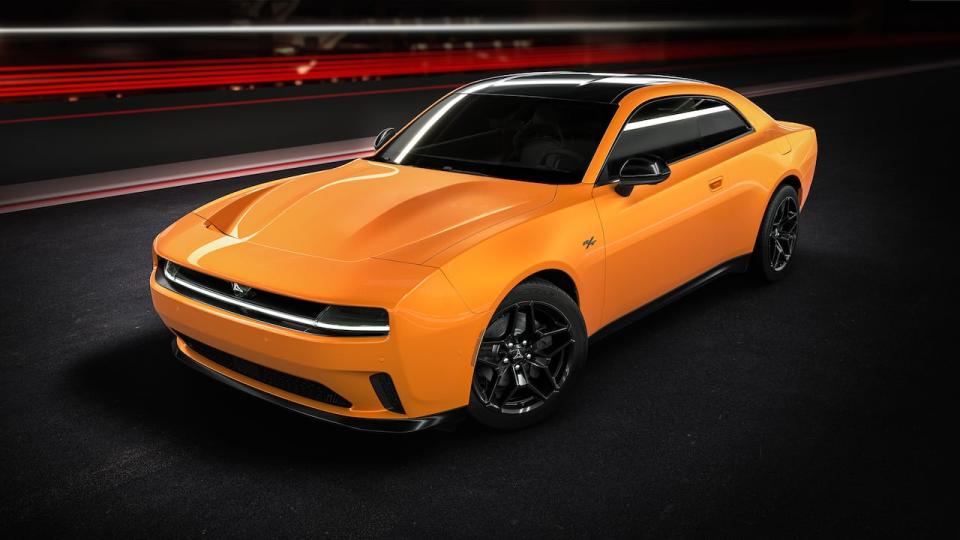New electric Dodge Charger will be built in Windsor, Ont., Stellantis says

New electric, all-wheel drive Dodge Chargers will be built in Windsor, Ont., automaker Stellantis announced Tuesday.
The company is billing the vehicle as the "world's first and only electric muscle car."
Several new Charger models, including gas-powered ones, will be produced in Windsor, starting with two-door versions later this year.
The Windsor facility also builds the Chrysler Pacifica minivan.
Stellantis had made a commitment to build additional vehicles at the assembly plant last year. The company is also building a massive electric vehicle battery plant in Windsor in partnership with LG Energy Solution.
Both the gasoline and electric Chargers will be built on Stellantis's global large vehicle underpinnings, and the factory will be able to flex between the models depending on consumer demand.

The two-door 2024 Dodge Charger Daytona R/T is one of several models that will be built at the Windsor Assembly Plant. (Stellantis)
Unifor Local 444 President Dave Cassidy, whose union represents the workers who will be building the vehicles, thinks the muscle cars will be good sellers.
"This is a good news story for Windsor Assembly Plant," he said. "It's a good news story for Windsor-Essex and it's great for generational changes as we go into this EV market, and with the new products that are coming into Windsor assembly plant."
Cassidy says he believes the success of these vehicles will ensure the plant goes back to being a three-shift operation, something the company promised previously.
The termination of the shift in 2020 affected 1,500 workers, with more than 700 given buyouts.
Last year Stellantis stopped making the gas-powered Chargers and Challengers, which were built in Brampton, Ont.
The electric versions, named Charger Daytona after the NASCAR raceway in Florida, will come with two powertrains, one delivering up to 670 horsepower with the ability to go from zero to 60 mp/h (97 km/h) in 3.3 seconds. The other is no slouch with 496 horses and a zero to 60 time of 4.7 seconds.
The 496-horsepower Daytona is expected to have a range of 510 kilometres per charge, while the high-performance version can go 418 kilometres.
The new gas-powered Charger Sixpack will look similar to the electric versions and be powered by a new 3-litre six-cylinder engine with two turbochargers. Standard versions will put out 420 horsepower while a high-output engine will have 550.
Company officials said they haven't completed fuel economy tests on the new engine in the Charger yet.
Production of the two-door coupe Daytona versions is expected to start this summer, while the electric four-door and gas-powered versions will start early next year.
Paul Tyll, Stellantis' senior manager of Dodge muscle cars, said there's a lot of interest and an engaged fan base for the product.
"If the interest trend transfer transitions into sales, it'll be a good year, but there's definitely an appetite for an all-American EV muscle car," he said.
New muscle car sound
He said the EV version features a patent-pending exhaust system to create to give the car a unique sound.
"It's going to have a very familiar undertone to what V8 engine sounds like," he said. "But it is not a V8 engine. It's not intended to replace a V8 engine. It's going to be its own sound that's going to be unique to the next generation Charger."
Sam Fiorani, vice-president of global vehicle forecasting for AutoForecast Solutions, says other automakers have made EVs that are good, but bland.
"Dodge is attempting to put some character into these vehicles by giving them a sound, by giving them a transmission," he said.
"Things that normally differentiate an internal combustion engine vehicle from its competition."
He thinks the vehicles will sell "as well as this market can absorb it" but notes the decades-long decline in the sale of cars in favour of SUVs, pickups and crossovers.


